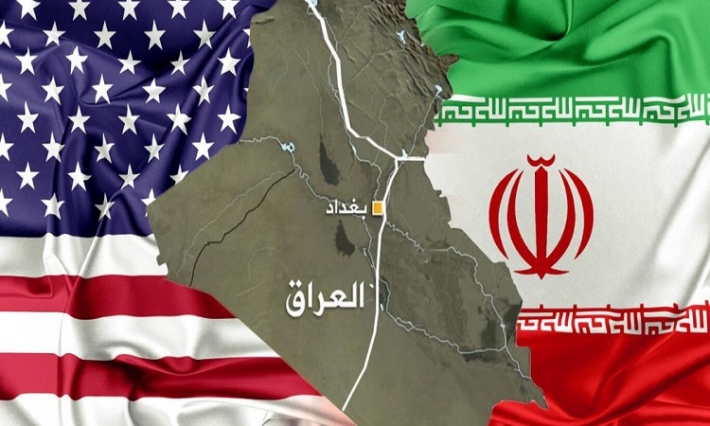Report: Iraq is an ATM machine for Iran .. So circumvent the US sanctions
Iraq seeks to establish a financial “outlet” that allows it to continue to buy electricity and vital gas from Iran and to circumvent the US sanctions, reflecting a European mechanism entered into force last Friday.
The “special purpose mechanism” will allow Iraq to pay the price of imported Iranian energy in Iraqi dinars, which Iran can use to buy humanitarian goods exclusively, according to three Iraqi officials told AFP.
This alternative solution will allow Baghdad to continue the import process and avoid popular protests caused by the lack of electricity, without being sanctioned, as it runs along a dangerous rope between its main allies, Tehran and Washington.
A senior government official said the mechanism was the result of months of talks between Iraqi, Iranian and US officials.
“The Iraqi government will continue to pay Iran in exchange for gas by depositing funds in a special bank account inside Iraq with the Iraqi dinar.”
“Iran will not be able to withdraw funds, but it will be able to use them to buy goods from outside Iraq,” he said.
Iraq has to pay an outstanding bill of about $ 2 billion for a previous gas and electricity purchase, according to Iranian Oil Minister Bijan Namdar Zangana.
A US official said Washington was aware of the mechanism, but the US embassy in Baghdad refused to comment.
Two Iraqi officials assert that Baghdad is establishing a similar mechanism with the knowledge of the United States, did not specify whether the deposit in the account has begun.
But one of them says: “How can Iraq pay what it has to Iran? We have no other choice. ”
ATM
To overcome the chronic shortage of energy resources, Iraq imports up to 28 million cubic meters of natural gas from Tehran to its factories and directly buys about 1,400 megawatts of Iranian electricity.
This dependence is uncomfortable for the United States, which sought to curtail Tehran’s influence and re-impose sanctions on Iranian financial institutions, shipping lines, the energy sector and oil products.
Washington re-imposed sanctions on Iran’s energy sector in November after it pulled out of a nuclear deal signed between the superpowers and Tehran in 2018, but gave Iraq several temporary exemptions to continue buying Iranian energy until October.
The United States insists that Iraq should stop its dependence on Iranian energy, but Baghdad says it could take up to four years to buy at least Iranian gas.
To do so, the central banks of Iraq and Iran agreed in February to establish a method of payment to avoid US sanctions, the official IRNA news agency reported.
That means not dealing with US dollars, and buying only “humanitarian supplies” allowed by the United States, such as food and medicine.
“We will become an ATM for Iran,” another Iraqi official said.
According to senior Iraqi officials, the account is likely to be established at the Commercial Bank of Iraq (TBI), which has carried out most of the international transactions of the Iraqi government since it was established following the US invasion in 2003.
A source from the bank confirms that the bank participated in the negotiations, but the account has not yet been established.
“The US Treasury has confidence in the operations of the Commercial Bank of Iraq. We are in discussions to reach an agreement, which will be fully in the US exemptions. ”
Account book
Ahmed al-Tabakli, a researcher at the Institute of Regional and International Studies in the city of Sulaymaniyah Baqim Kurdistan, said that it would be an effective avoidance of sanctions.
“It’s like a book of accounts, the money is being paid, and Iran has that big asset in Iraq,” he says.
Thus, this system will be similar to the recently implemented “Ensticks” mechanism by Britain, Germany and France to trade legitimately with Iran without prejudice to US sanctions.
Nevertheless, the system is fraught with political, financial and practical complexities.
Iraq’s economy relies almost entirely on oil revenues, which are paid in US dollars, making Baghdad highly vulnerable to any punitive measures the United States can take in response to any violation.
It remains unclear what exactly Iran can buy from Iraq, as trade exchange tends in the other direction.
“Credit will develop for Iran, but how will it go? “Adding that importing goods from outside Iraq requires a third party willing to take political and financial risks for a similar deal.
In the end, most of Iraq’s transactions with Iran are cash purchases of commercial goods, which the US sanctions authorities can not enforce. “Cash can not be tracked,” al-Tabakali said

